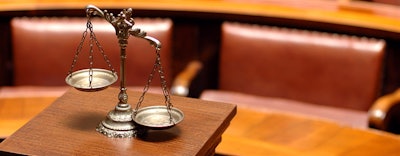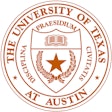
Of all the freedoms Americans possess, perhaps none are more cherished than those stated in the First Amendment.
When looking at the First Amendment's freedom of speech right, however, it is important to note that not all speech is protected. In particular, the First Amendment does not protect speech used in such circumstances and are of such a nature as to create a clear and present danger. A good case to illustrate this point is Bell v. Itawamba County School Board, 2015 U.S. App. LEXIS 14630.
COACH REPORTS RAP
While away from school and not using school resources, Taylor Bell, a student at Itawamba Agricultural High School in Mississippi, recorded and posted a rap on Facebook and YouTube that included threatening language against two teachers/coaches at his school. The recording, in part, also alleged misconduct against female students by the two coaches. After hearing the rap recording, one coach immediately reported it to the school's principal. The next day, the school principal, superintendent and an attorney representing the school board questioned Bell, including the veracity of his misconduct allegations regarding the coaches, and the identity of the students involved. Bell was then sent home for the remainder of the day.
Upon returning to school, Bell was removed from class and informed that he was being suspended pending a disciplinary committee hearing. During the hearing, Bell explained that he did not mean that he personally intended to kill anybody, but that he was only "foreshadowing something that might happen." Bell also added that he put the recording online to increase awareness of the situation. However, Bell claimed that he did not think the coaches would hear the recording and did not intend it to be a threat. The day after the hearing, Bell was notified that the disciplinary committee had determined that the recording constituted harassment and intimidation in violation of school district policy and state law. The committee recommended that Bell's seven-day suspension be upheld and that he be placed in the county's alternative school for six weeks.
Bell appealed to the school board. In upholding the suspension, the board found that Bell "threatened, harassed and intimidated school employees." Bell and his mother filed a lawsuit challenging the board's action, claiming that it violated his First Amendment right to free speech. The district court ruled that the school board acted reasonably and dismissed the case. In particular, the court found that the rap recording constituted harassment and intimidation of teachers and possible threats against teachers. The court also found that the recording caused a substantial disruption at school or was reasonably foreseeable to cause such a disruption.
Bell next appealed to the United States Court of Appeals for the Fifth Circuit. In this appeal, Bell claimed that off-campus speech such as his rap recording is different than on-campus speech, and therefore it should be granted greater protection under the First Amendment. In addition, Bell argued that even if the two types of speech are the same, the school district failed to show that the speech was a "substantial disruption" at the school.
SAY ANYTHING?
In reviewing Bell's arguments, the Fifth Circuit, citing the United States Supreme Court in Tinker v. Des Moines Independent Community School District, held that while students do not forfeit their First Amendment freedom of speech rights at the "schoolhouse gate," the First Amendment does not provide students an absolute right to say anything. In particular, the Fifth Circuit held that the student's free speech must be tempered in the light of a school official's duty to teach students the boundaries of socially appropriate behavior and protect those entrusted to their care.
In applying this standard to Bell's first argument, the court noted that the Tinker decision was made in an era when the Internet, smartphones and digital social media did not exist. The advent of these technologies and their sweeping adoption by students, the court held, present new and evolving challenges for school administrators, confounding previously delineated boundaries of permissible regulations. As a result, students now have the ability to disseminate instantaneously and communicate widely from any location via the Internet.
These communications, which may reference events occurring or to occur at school, or pertain to members of the school community, can likewise be accessed anywhere, by anyone, at any time. When all of this is considered in the context of recent violent incidents against school communities, the court held that it was necessary for school officials to be able to react quickly and efficiently to protect students and faculty from threats, intimidation and harassment intentionally directed at the school community. Therefore, the court held Tinker applies to off-campus speech in certain situations.
The Fifth Circuit next considered under what circumstances off-campus speech could be restricted. The appeals court found that Bell produced and disseminated the rap recording knowing students — and hoping administrators — would listen to it. In addition, the court found that regardless of whether Bell's statements qualify as "true threats," they clearly constitute threats, harassment and intimidation. In particular, the court noted that Bell's statements threatened violence against the two coaches, describing the injury to be inflicted — "putting the pistol down their mouths and pulling the trigger" and "capping" them — and encouraged others to engage in this action.
In addition, by forecasting the aforementioned violence, warning them to "watch their backs" and that they would "get no mercy" when such actions were taken, the court found the rap harassed and intimidated the coaches. In applying the Tinker standard, the Fifth Circuit ruled that schools have the right to regulate student speech that is intentionally directed at the school community and creates a risk of substantial disruption within the school environment, even when originated and disseminated off-campus without the use of school resources.
The next question was whether Bell's recording either caused an actual disruption or reasonably could be forecast to cause one. In ruling that Bell's speech threatening, harassing and intimidating the two coaches reasonably could have been forecast to cause a substantial disruption, the court held that the Tinker test is satisfied when either an actual disruption occurs or the record contains facts which might reasonably have led school authorities to forecast substantial disruption of or material interference with school activities.
Applying this test, the court held that threatening, harassing and intimidating a teacher impedes, if not destroys, the ability to teach; it impedes, if not destroys, the ability to educate; it disrupts, if not destroys, the discipline necessary for an environment in which education can take place; and it encourages and incites other students to engage in similar disruptive conduct. Moreover, it can even cause a teacher to leave that profession. In sum, the court held such speech can destroy the very mission for which schools exist, which is to educate.
RIGHTS OF ADMINISTRATORS
The decision by the Fifth Circuit is important for a number of reasons. First, it makes clear that off-campus speech threatening violence made by students online and directed toward the school community is not protected free speech.
While some might argue this diminishes the rights of students, when weighed against administrators' duty to protect their students and prevent disruptive and potentially dangerous behavior, the school's interest is clearly greater. Second, while protecting students' First Amendment rights is important, the case illustrates that as long as school administrators act reasonably, they can react quickly and decisively to address threats of physical violence without worrying whether they will have to face years of litigation second-guessing their judgment as to whether the threat posed a real risk of substantial disturbance.
Attorney John T. Wolohan is a professor of sports law in the Department of Sport Management at Syracuse University. Louise Chouinard is a senior at Syracuse University studying broadcast and digital journalism in the Newhouse School of Public Communications.
This article originally appeared in the November | December 2015 issue of Athletic Business with the title "Restricted Speech"




































